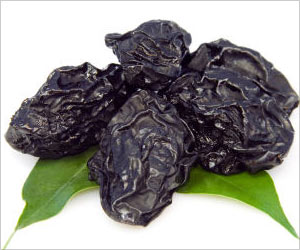
- As respiratory problems become more prevalent distinguishing between COVID-19 and Allergic Rhinitis (AR) is crucial
- COVID-19 typically presents with fever, fatigue, and loss of taste or smell, distinguishing it from the milder symptoms of sneezing and nasal congestion in AR
- Creating awareness, precise diagnosis, and appropriate management is crucial to addressing the rising incidence of AR and other respiratory issues in both children and adults
In the current landscape, respiratory ailments such as cough, cold, and throat infections have become increasingly prevalent, particularly among children. Concerned parents often associate these symptoms with COVID-19, especially given the recent surge in JN.1 cases. However, medical professionals assert that a considerable number of children are likely experiencing Allergic Rhinitis (AR) instead.
Advertisement
How to Identify if it is COVID-19 or Allergic Rhinitis?
While both COVID-19 and Allergic Rhinitis exhibit respiratory symptoms, notable distinctions set them apart. COVID-19 typically presents with symptoms like fever, fatigue, and loss of taste or smell (1), which are not commonly associated with AR. Furthermore, respiratory distress is more severe in COVID-19, contrasting with the milder symptoms of sneezing and nasal congestion characteristic of AR (2). Another crucial difference lies in the contagious nature of COVID-19, caused by a virus, while AR stems from allergic reactions to pollen or irritants. These distinctions were highlighted by doctors during an awareness event conducted by the Indian Medical Association (IMA).
Pediatric intensivist and allergy specialist Dr. Anupam Bahe provided insights into ‘Allergic Rhinitis in Kids: Myths, Facts, and Treatment.’ He highlighted that AR primarily affects the upper airways, causing nasal congestion and sneezing. In contrast, COVID-19 involves lower respiratory tract symptoms such as cough, shortness of breath, and chest pain, indicating potential lung involvement. Dr. Bahe pointed out that AR rarely progresses to lung complications, focusing on upper airway irritation.
The critical difference lies in the severity and nature of lung impact. COVID-19 may lead to severe pneumonia and acute respiratory distress syndrome (ARDS), requiring critical medical attention. AR typically spares the lower respiratory tract, underscoring the importance of distinguishing between these conditions for accurate diagnosis and appropriate management.
Advertisement
What is More Common in Kids- COVID-19 or Allergic Rhinitis?
Dr. Vandana Kate, President of IMA Nagpur, emphasized the significance of awareness, especially considering that Allergic Rhinitis is more prevalent among pediatric and adolescent patients. It can affect individuals in various ways, impacting the development of children and adolescents and potentially leading to academic and athletic performance issues. Dr. Kate stressed the importance of counseling parents when treating patients with AR.
Advertisement
Rise in Global Prevalence of Allergic Rhinitis
Veteran pulmonologist Dr. Rajesh Swarnakar highlighted the escalating global incidence of allergic rhinitis and asthma, emphasizing the need for precise therapy for effective management. ENT surgeon Dr. Gauri Kapre Vaidya explored the intricate relationship between stress and allergy, stating that stress plays a direct role in exacerbating allergic responses. She highlighted the positive role of nasal douching, specifically Jal Neti, in managing rhinosinusitis (3).
In December, experts at Civil Hospital in Ahmedabad handled two cases of foreign objects lodged in the respiratory tract, underscoring the need for vigilance. Instances of children ingesting objects like coins, pins, battery cells, and LED bulbs have been recorded, emphasizing the importance of child safety.
The recent increase in pollution levels and winter smog has contributed to a surge in respiratory issues. Patients are reporting complaints of Chronic Obstructive Pulmonary Disease, SARS CoV2, and bronchial asthma. Children, in particular, are vulnerable to the harmful effects of air pollution, which can impede lung growth, increase the risk of infections, and asthma, and hinder overall lung development. The lingering pollutants during winter pose an elevated risk of lung issues and bronchial asthma (4).
In conclusion, amidst the prevalent respiratory concerns, distinguishing between COVID-19 and conditions like Allergic Rhinitis becomes crucial for accurate diagnosis and tailored treatment approaches. Increased awareness and proactive measures are vital in safeguarding the respiratory health of individuals, particularly children, in the face of evolving environmental challenges.
References:
- Clinical manifestations of COVID-19 in the general population: systematic review
da Rosa Mesquita R, Francelino Silva Junior LC, Santos Santana FM, Farias de Oliveira T, Campos Alcântara R, Monteiro Arnozo G, Rodrigues da Silva Filho E, Galdino Dos Santos AG, Oliveira da Cunha EJ, Salgueiro de Aquino SH, Freire de Souza CD. Clinical manifestations of COVID-19 in the general population: systematic review. Wien Klin Wochenschr. 2021 Apr;133(7-8):377-382. doi: 10.1007/s00508-020-01760-4. Epub 2020 Nov 26. PMID: 33242148; PMCID: PMC7689634. - Allergic rhinitis: definition, epidemiology, pathophysiology, detection, and diagnosis
Skoner DP. Allergic rhinitis: definition, epidemiology, pathophysiology, detection, and diagnosis. J Allergy Clin Immunol. 2001 Jul;108(1 Suppl):S2-8. doi: 10.1067/mai.2001.115569. PMID: 11449200. - A review on the therapeutic effects of NetiKriya with special reference to JalaNeti
Meera S, Vandana Rani M, Sreedhar C, Robin DT. A review of the therapeutic effects of NetiKriya with special reference to JalaNeti. J Ayurveda Integr Med. 2020 Apr-Jun;11(2):185-189. doi: 10.1016/j.jaim.2018.06.006. Epub 2019 Jan 5. PMID: 30616871; PMCID: PMC7329727. - Impact of Air Pollution on Asthma: A Scoping Review
Bronte-Moreno O, González-Barcala FJ, Muñoz-Gall X, Pueyo-Bastida A, Ramos-González J, Urrutia-Landa I. Impact of Air Pollution on Asthma: A Scoping Review. Open Respir Arch. 2023 Jan 3;5(2):100229. doi: 10.1016/j.opresp.2022.100229. PMID: 37496874; PMCID: PMC10369532.
Source-Medindia



